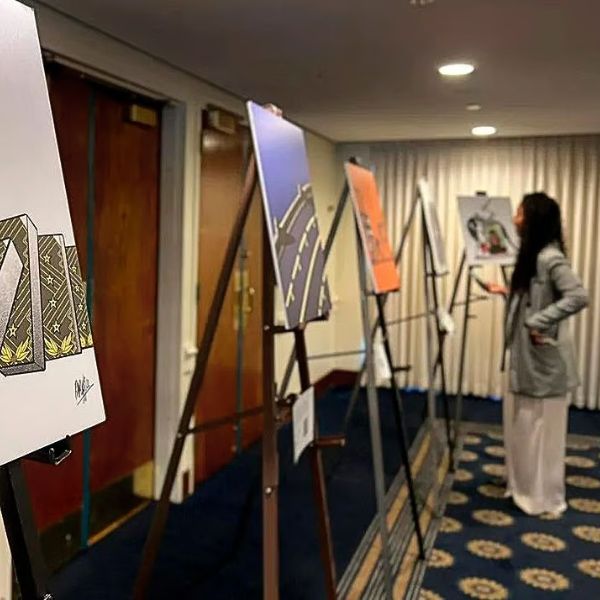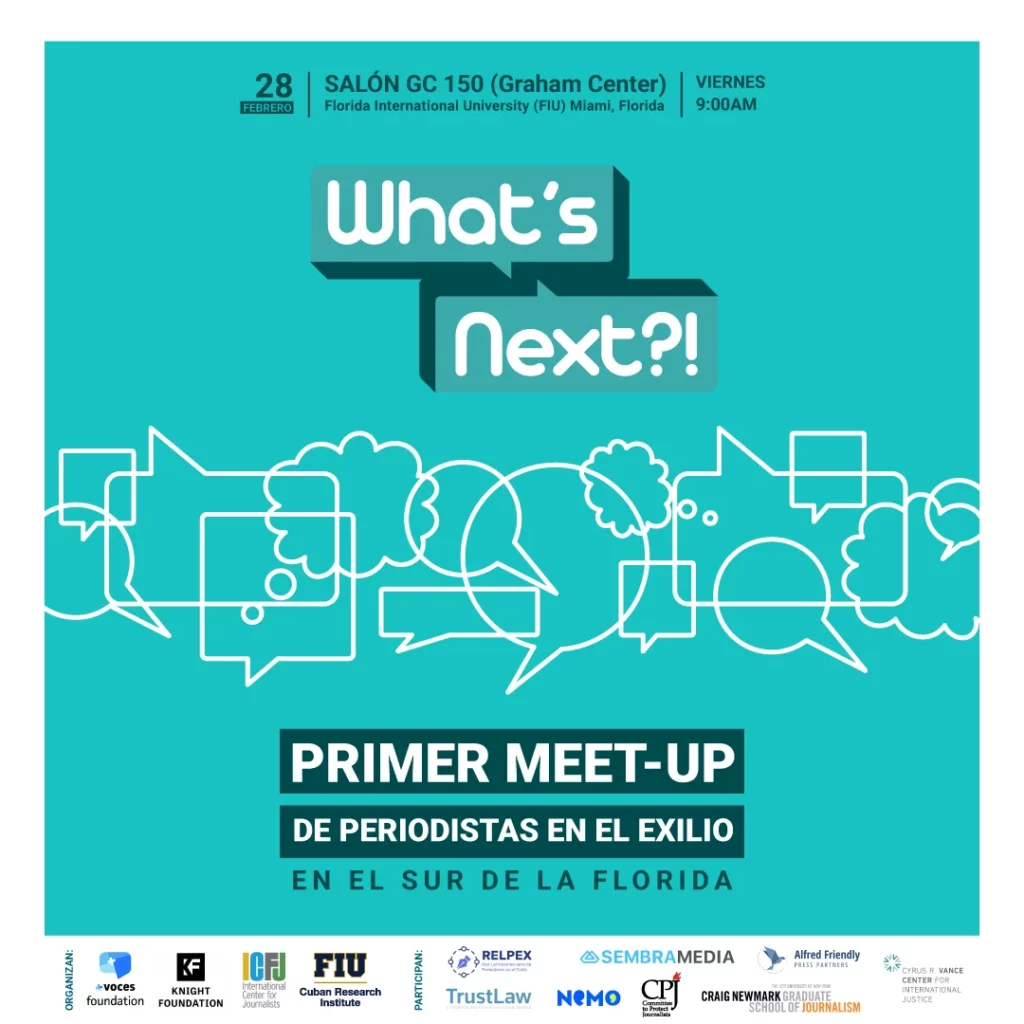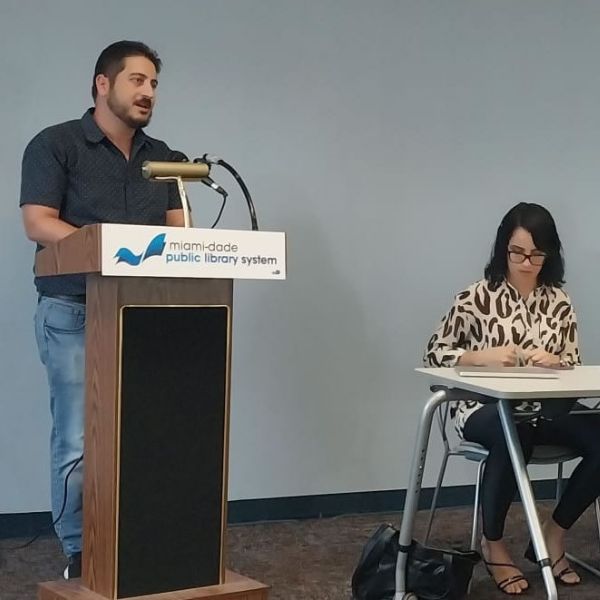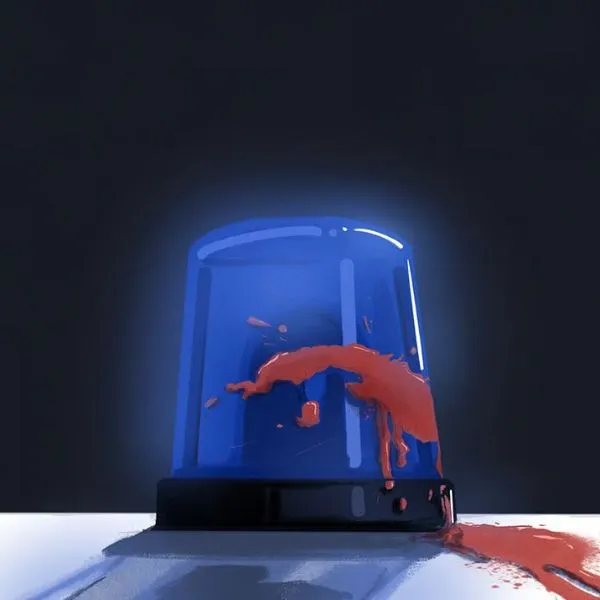The role of artistic manifestations in contexts dominated by authoritarian regimes focused the analysis of the discussion "Graphic humor, art and satire in the face of social protests and the human rights crisis in Cuba" that took place within the framework of the 53rd General Assembly of the Organization of American States (OAS), June 20, 2023. "We Cuban artists have had the ability to show and launch to the world a new type of activism that has made the island's reality visible," said Camila Lobón, visual artist, activist and columnist.
«Art proposed a creative language, a way of influencing society that allowed the exercise of the rights of expression, demonstration and association from the presuppositions of art, making it much more difficult for the State to locate and criminalize it» , he deepened.
Lobón also explained that, in the face of the Cuban Government's positioning as the banner of the Latin American left and utopia, an independent narrative sustained by the artistic story has emerged.
For his part, José Jasán Nieves, director of the media platform elTOQUE, explained that “humor can be an extremely useful tool for public debate. The symbolic irreverence of humor, which takes politicians off their pedestal and comfort zone, is formed as a new form of struggle.
In authoritarian contexts like Cuba, artists also face censorship and are penalized if they exercise freedom of creation. Pedro Vaca, special rapporteur for Freedom of Expression of the Inter-American Commission on Human Rights (IACHR), assured that in Cuba there is high institutional tolerance for censorship.
However, according to Vaca, the IACHR has identified that there is no social tolerance for censorship, which is why artistic spaces become a way of "endorsing a citizen commitment to the plural debate of ideas."
«Art usually walks on the edge of collective self-censorship. Verbalizing, writing, capturing... what many want to say can imply tremendous levels of fear of retaliation. That is why art fills us with hope when it is capable of reflecting something that we collectively want to say: a strangled cry that reflects a citizen's feeling," Vaca acknowledged.
The rapporteur also highlighted that for more than half a century Cuba has been a State governed by a single Party that prevents channels of political influence; severely restricts the rights of freedom of expression, peaceful assembly and association; and puts government machinery into practice to silence voices that criticize or question it.
"The repression in Cuba does not only affect journalists, but also activists, artists, citizens who organize to express and articulate their demands," Vaca explained to those present.
As a result of the massive arrests following the anti-government protests of July 11 and 12, 2021, the IACHR granted 12 precautionary measures, the largest number granted to Cuban citizens. Through this protection mechanism, the IACHR requests that States guarantee the protection of one or more people who are in a serious and urgent situation of suffering irreparable harm.
Vaca also made visible the cases of Maykel Osorbo and Luis Manuel Otero Alcántara. It declared that, since 2021, at least 22 members of the San Isidro Movement were beneficiaries of precautionary measures in an attempt by the international organization to protect their rights to free creation and expression, without being objects of acts of violence, intimidation or harassment in the exercise of their duties.
Orelvis Cabrera Sotolongo, when referring to his experience as an independent journalist in Cuba, testified: "Cuban independent journalists are pursued, threatened, harassed so that we do not show the true reality of journalism. At all times, we work under persecution that makes us feel like war correspondents."
At the conclusion of their remarks, participants agreed that among the actions to confront censorship, it is necessary to advocate for the deconstruction of the myth of Cuba as a paradigm of social justice; the empowerment of civil society; and the granting of trust from citizens to independent media to narrate everyday stories (portraying the country with balance and objectivity).
The exhibition "A punta de lápiz" ("At pen point") was presented in the space. The display consists of 17 works by graphic artists who have published in the humor supplements Xel2 (created and directed by Wimar Verdecia) and Matraca since 2019. Featuring cartoons and vignettes created by Mary Esther Lemus, Wimar Verdecia, Ramsés Morales, Fabián Sotolongo, Irán Hernández, Alen Lauzán, Brady Izquierdo, and Gustavo Rodríguez (Garrincha), the exhibition invites reflection through political satire on sociopolitical events that have marked recent years in Cuba.
Previously, the artworks were exhibited at the Green Library gallery on the Modesto Maidique campus of Florida International University (FIU) in Miami, and at the Cultural Space Aguaribay during the 20th anniversary event of the Center for Opening and Development of Latin America (Cadal), in Buenos Aires.
Due to the repressive offensive carried out by the Cuban State Security Organs against the elTOQUE team, the graphic humor supplement Xel2 came to an end in September 2022.
The panel discussion and visual art exhibition were organized by the International Institute on Race, Equality and Human Rights (Race and Equality) and elTOQUE, as part of the collateral activities of the 53rd Session of the OAS General Assembly. The Session began on June 13, 2023, and will extend until June 23 at the organization's headquarters in Washington.
According to Néstor Méndez, Assistant Secretary General of the OAS, speaking at a press conference, the participation of 24 foreign ministers and seven deputy ministers has been confirmed, who will debate topics related to "Strengthening a culture of democratic accountability with human rights protection and equality in the Americas." Agenda items include migration processes of minors, financing against climate change, and positions on the political contexts of Nicaragua and Haiti.
Taken from: elToque









